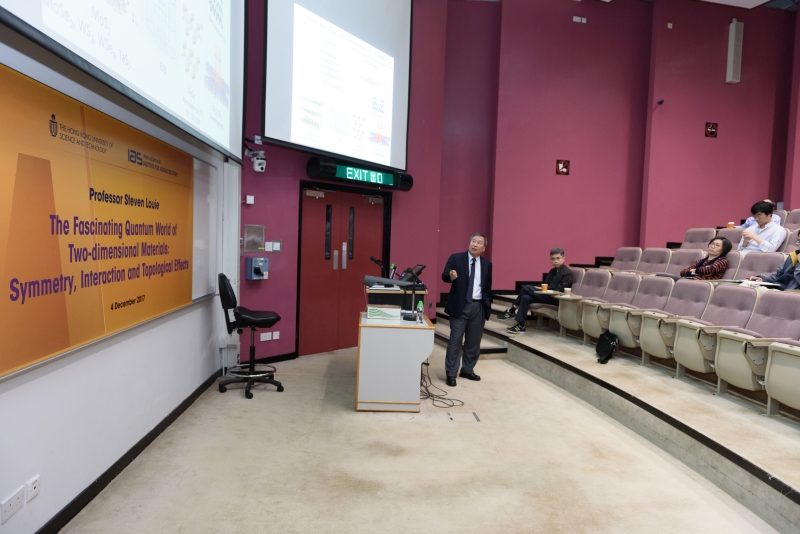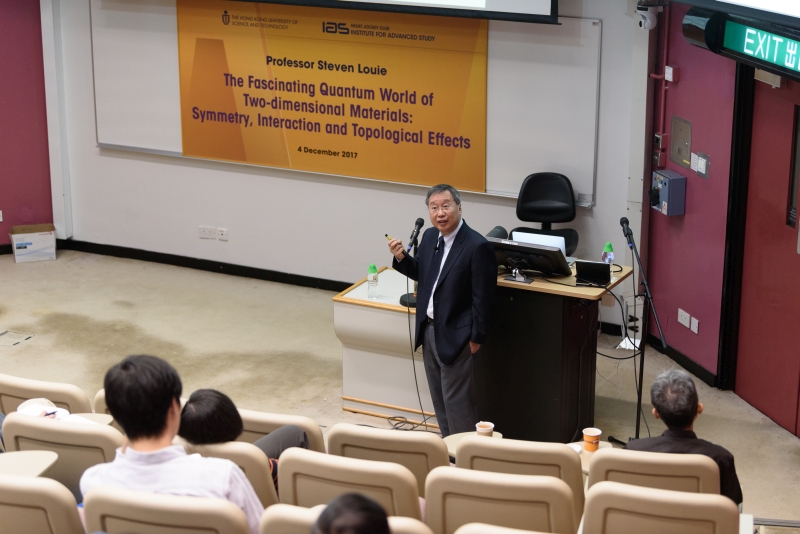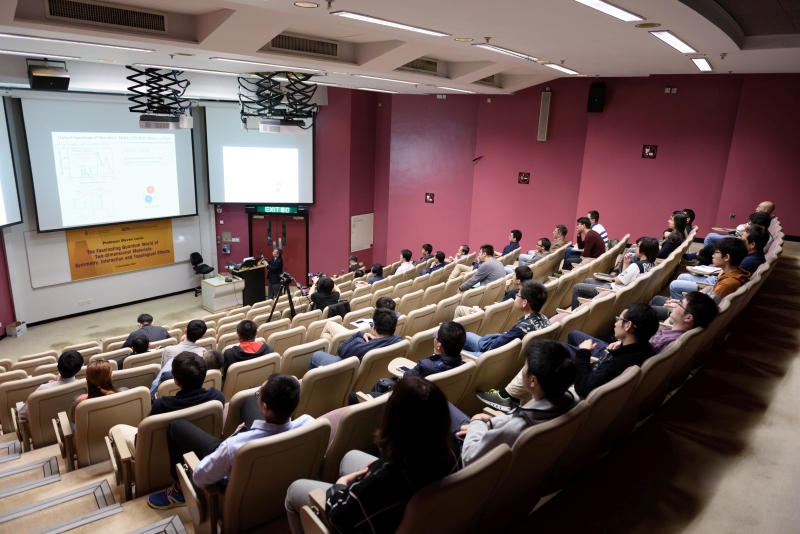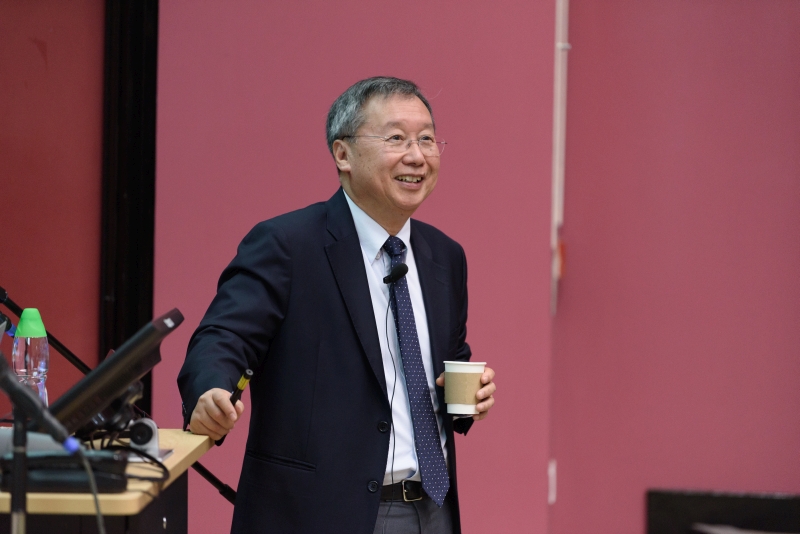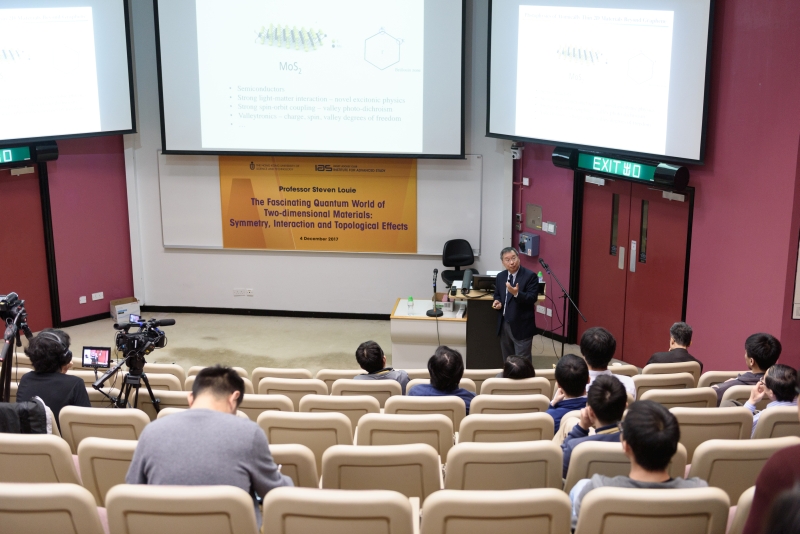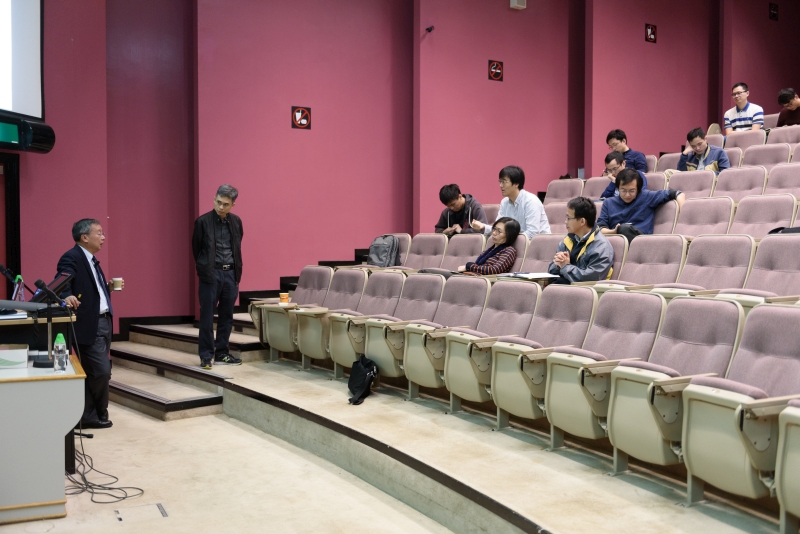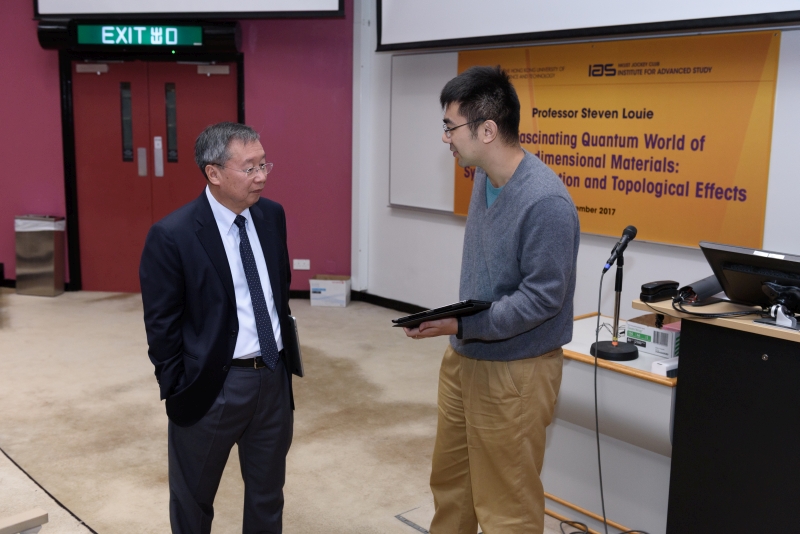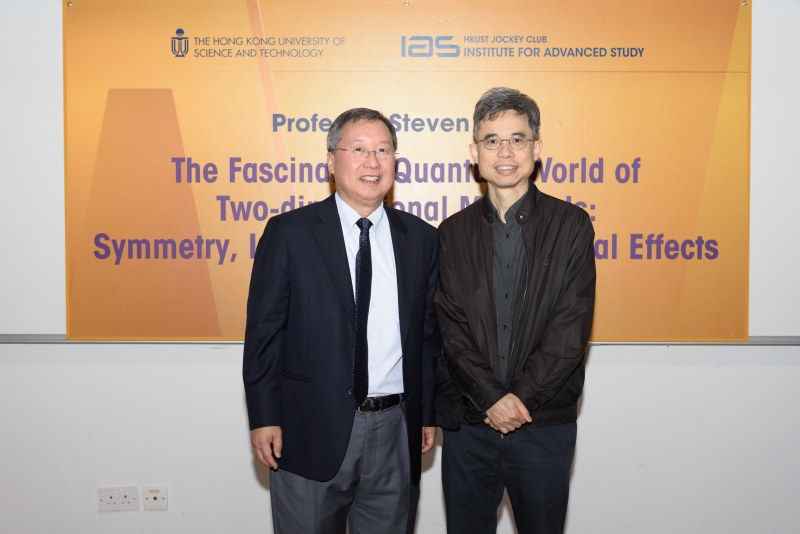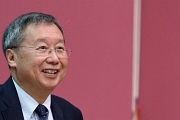The Fascinating Quantum World of Two-dimensional Materials: Symmetry, Interaction and Topological Effects
Abstract
Symmetry, interaction and topological effects, as well as environmental screening, dominate many of the quantum properties of reduced-dimensional systems and nanostructures. These effects often lead to manifestation of counter-intuitive concepts and phenomena that may not be so prominent or have not been seen in bulk materials. In this lecture, the speaker will present some fascinating physical phenomena discovered in recent studies of atomically thin two-dimensional (2D) materials. A number of highly interesting and unexpected behaviors have been found – e.g, strongly bound excitons (electron-hole pairs) with unusual energy level structures and novel optical selection rules; massless excitons; tunable magnetism and plasmonic properties; electron supercollimation by disorders; and novel topological phases – adding to the promise of these 2D materials for valuable applications.
About the speaker
Prof. Steven Louie received his PhD from the University of California at Berkeley in 1976. Since 1980, he has taught at UC Berkeley, where he is currently a Professor of Physics. He is concurrently a Senior Faculty Scientist in the Materials Sciences Division of the Lawrence Berkeley National Laboratory.
Prof. Louie’s research interests cover mainly theoretical condensed matter physics and nanoscience, which include: electronic and structural properties of crystals, surfaces, interfaces and clusters; quasiparticle and optical excitations in solids and nanostructures; electron correlation effects in bulk and reduced-dimensional systems; carbon and BN nanotubes; graphene; superconductivity; electron transport through single molecules and other nanostructures. The objective is to explain and predict the properties of materials using first-principles theories and computation.
Prof. Louie is a member of the US National Academy of Sciences, the American Academy of Arts and Sciences and the Academia Sinica (Taiwan). He is identified as one of the most highly cited researchers in the field of physics and one of the 25 most highly cited authors in nanoscience. His pioneering work on the ab-initio treatment of material properties earned him many awards and honors, including the Foresight Institute Richard P Feynman Prize in Nanotechnology (2003), APS Aneesur Rahman Prize for Computational Physics (1996), and the US Department of Energy Award for Sustained Outstanding Research in Solid State Physics (1993).

